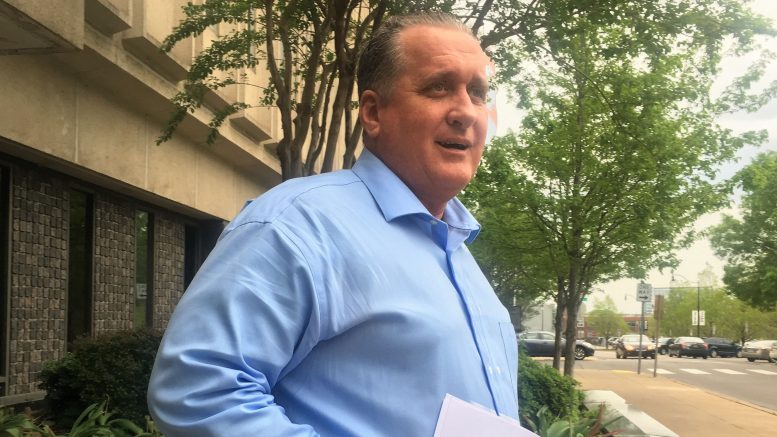In a federal lawsuit outlining explosive allegations against two Clay County pharmacies making its way through the court system, four individuals are named as defendants in the case, including the pharmacies’ majority owner and three pharmacists who allegedly filled scores of suspect prescriptions.
Dale Hollow Pharmacy and Xpress Pharmacy, located three doors from each other in the 1,500-person town of Celina, Tennessee, have been investigated on multiple occasions in the past by the Drug Enforcement Administration leading up to the lawsuit’s filing in February.
Here’s a look at the people named in the lawsuit.
 (Photo: Larry McCormack / The Tennessean)
(Photo: Larry McCormack / The Tennessean) The small town of Celina saw an influx of people from other counties and states to have their prescriptions filled at two pharmacies in the town until the DEA stepped in. Photo taken Tuesday, April 30, 2019, in Celina, Tennessee.
Thomas Weir
Weir owns 51 percent of both Dale Hollow and Xpress pharmacies and is Dale Hollow’s CEO, according to the lawsuit.
Last June during a DEA investigation of Dale Hollow, Weir allegedly told agents that doctors, not pharmacists, should be investigated, and that he couldn’t tell a board-certified doctor “no,” according to a written statement by DEA Diversion Investigator Samantha Rogers.
 (Photo: Larry McCormack / The Tennessean)
(Photo: Larry McCormack / The Tennessean) Dale Hollow Pharmacy has effectively closed since a federal lawsuit was filed in February. A subsequent court order prohibited the pharmacy from dispensing any controlled substances indefinitely. Photo taken Tuesday, April 30, 2019, in Celina, Tennessee.
Weir, who doesn’t have a pharmacy license, told agents he didn’t believe the opioid epidemic exists, calling it “media hype,” Rogers’ statement says.
Weir also has ties to Elliott Fiber, a company based in Livingston, Tennessee, that installs fiber for telephone companies. The company’s principal office is Weir’s home address, and he was listed as the registered agent until December.
Weir’s attorney declined to comment.
John Polston
The pharmacist in charge at Dale Hollow Pharmacy, Polston’s license was placed on probation in 2015 after investigators found he dispensed controlled substances to a family member who didn’t have a valid prescription.
 (Photo: Elaina Sauber / The Tennessean)
(Photo: Elaina Sauber / The Tennessean) John Polston walks out of the federal courthouse in Nashville on April 18 after a court appearance. Polston is the pharmacist in charge at Dale Hollow Pharmacy.
During his probation, Polston admitted to DEA agents that Weir sometimes asked him to fill prescriptions for controlled substances “one or two days earlier than the refill date,” according to Rogers’ statement.
In April, Polston was indicted on nearly two dozen violations of the Controlled Substances Act.
Polston declined to comment for this story.
Michael Griffith
The pharmacist in charge at Xpress Pharmacy, Griffith’s license was placed on probation for five years in 2012 by the Tennessee Board of Pharmacy after he stole hydrocodone while working at a another pharmacy, according to the lawsuit.
Griffith’s attorney didn’t respond to a request for comment.
Larry Larkin
Larkin, who worked on a part-time basis at both pharmacies, was open about his employment there when reached for comment.
He disputed the lawsuit’s allegations that he irresponsibly filled prescriptions, and said he regularly checked the state prescription database and refused to fill suspicious orders.
On one occasion, Larkin said he refused to fill a prescription because it had been altered. Someone had attempted to scribble over a note on the prescription from another pharmacist that said it was too early to fill it, Larkin said.
When Weir pressured him to fill it anyway, Larkin said he stood his ground.
Larkin’s pharmacy license was placed on probation in the 1990s for unauthorized filling of prescriptions. His license was later revoked in 2004 after he tested positive for cocaine, then left a rehab facility against medical advice.
Source: www.tennessean.com





Be the first to comment on "Who’s Behind the Clay County Pharmacies in the Federal Opioid Lawsuit?"